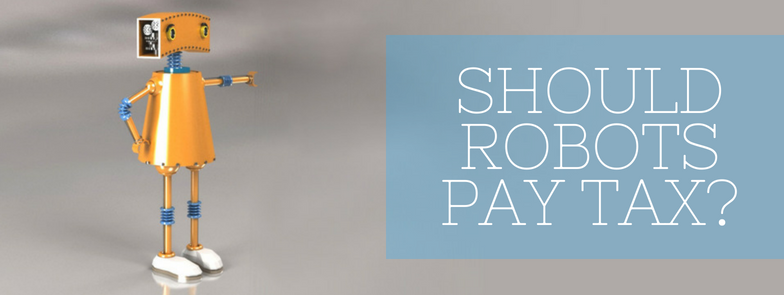Should Robots Pay Tax?

AI and assisting technologies are no new thing in the world of business. From retail to manufacturing, this technology is becoming a part of our everyday lives, and many workers are concerned that one day they will be replaced by a machine that can do their job twice as fast and for half the cost. It’s clear to see where these concerns come from when it has been predicted that by 2030 one in five jobs will be automated. However, if there are to be less humans in the workplace, the government will inevitably see a drop in contributions to tax. So how will they be able to rectify this?
The Technology
In pretty much every sector we have started to see the introduction of new technologies which work faster, smarter and harder than is possible for any person to do. Robots have been introduced in factories and warehouses to pick and pack and transport goods, care homes are seeing technology which can monitor residents and aid in mobility. So far however, these systems seem to support current workers in their tasks rather than replace them completely. As these technologies develop is it inevitable that we will see job losses across all sectors?
The Solution?
If there are less human workers able to make tax contributions, then those contributions need to come from elsewhere. That is the thought of Bill Gates, Microsoft founder. Mr Gates has suggested that if tax contributions can be taken from regular employees then why wouldn’t you be able to tax the robots that replace them.
This idea has already been the topic of discussion in the EU and in South Korea they have already limited tax incentives for investments in automated machines. Now in the UK an inquiry has been launched into automation and the future of work by the Business, Energy and Industrial Strategy (BEIS) Committee.
However there has been criticism from several people who argue that the introduction of a ‘robot tax’ would only discourage investments in technology due to the potential rise in costs. There are many who believe that the introduction of AI and assisted technologies will only increase jobs for workers as there will be a need for skilled employees to develop and maintain the technology, resulting in higher productivity levels and wages. And of course, there are tasks which robots will not be able to carry out, the more human-centric roles which require face to face interaction.
Whatever effect AI and automation will have it is unlikely that it will create a crisis in employment or to the economy. The more likely reality is that rather than jobs being replaced workers will need to be re-skilled in order to incorporate assisted technology into their working life. The question now is how will the government deal with the changes which will likely affect job roles, employment policies and a possible changes to tax liabilities.
As part of their inquiry, parliament is inviting businesses to send a written submission of their opinions on the issue and what effects it may have going forward. The deadline for submissions is 24th August. If you would like to send a written submission then follow this link http://bit.ly/2v6EcZ7

